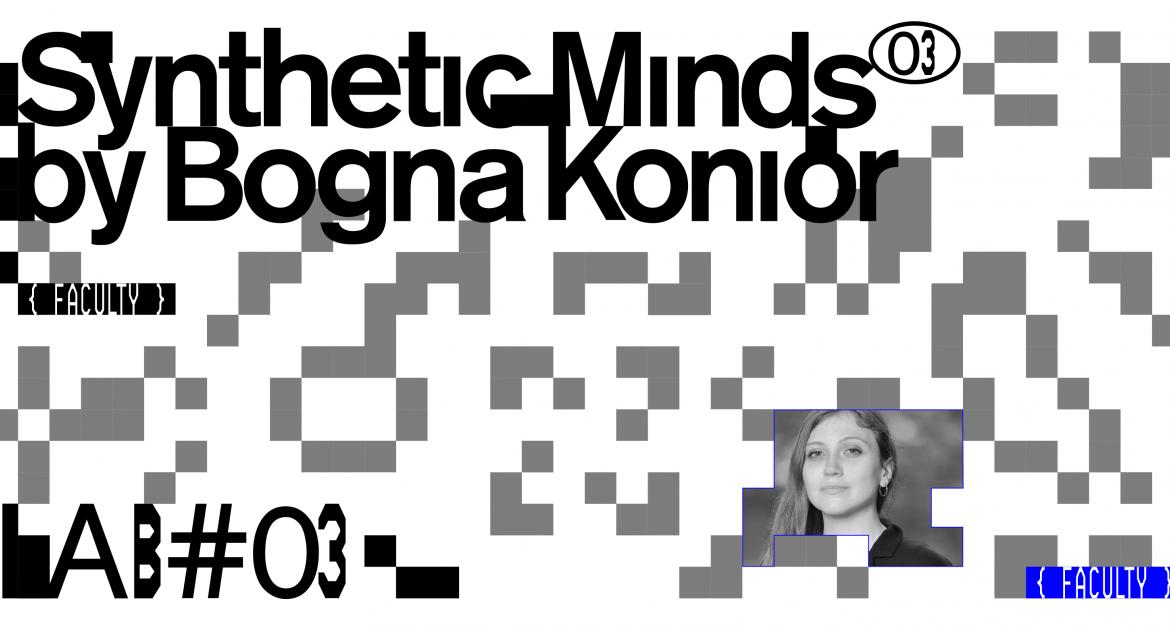Synthetic Minds by Bogna Konior

Bogna Konior for Medialab Matadero
Although the term "Synthetic Minds" immediately evokes artificial intelligence, we should not overlook the fact that all minds may be a priori and inherently synthetic. This is not only because of the mind’s capacity for abstraction, but rather due to the intimate relation between cognition and the so-called ‘artifice’ through which it operates, including language itself.
A mind emerges and functions in relation to the technologies of abstraction that support it, rather than existing independently from them as a natural essence unspoiled by synthetic modulation. If Marshall McLuhan famously noticed that contemporary ‘electric’ technologies are a prosthetic extension of our mind, could we also propose that our minds are synthetic extensions of the technics prevalent at this moment in history? Have we always been synthetic? How can we view the history of our species, and the history of life and cognition on this planet, in light of this proposition?
Moreover, what if human minds are just a stage in the history of technology? What are the long-term trajectories for cognition, and could it ever be sustained autonomously through computation? What bodies or containers are necessary for a mind to exist? The question of 'the mind' is a question of evolution and the interrelation between environment and culture, where perception and reasoning occurs. With different ecologies and techniques, we may have different types of minds. Although humans may not be able to direct the evolution of life or technology on a world-historical level through conscious decision-making, we can attempt to intensify or inhibit certain trajectories, and propose frameworks for understanding such processes that account for long-term change.
*BIO
Bogna Konior is Assistant Professor at the Interactive Media Arts department, and co-director of AI & Culture Center at NYU Shanghai. In 2023, she is a Research Fellow in the Antikythera Program on Speculative Computation at the Berggruen Institute, and a mentor in the Synthetic Intelligence program at Medialab-Matadero Madrid. Her work on digital culture, philosophy of new media, and posthumanism has been presented internationally, recently including the Cambridge Leverhulme Centre for the Future of Intelligence, ZKM | Center for Art and Media, e-flux, and the Ljubljana Biennale. She is currently working on two projects concerned with long-term trajectories of technological development. Her current academic project is on Polish science fiction writer and philosopher, Stanislaw Lem, and his neglected contribution to the theory of biotechnological evolution of autonomous reason. She is also working on a multimedia research project on female Catholic mysticism as an early form of cybefeminism and a predictor of machine erotics, nonhuman personhood, and artificial reproduction.



 Medialab-Matadero Madrid
Medialab-Matadero Madrid